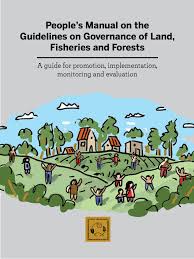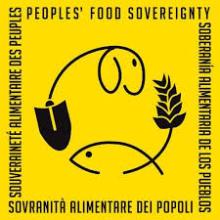People’s Manual on the Guidelines on Governance of Land, Fisheries and Forests: A guide for promotion, implementation, monitoring and evaluation
Resource information
Date of publication
Febrero 2016
Resource Language
Pages
50
License of the resource
The manual explains how to use the Voluntary Guidelines on Responsible Governance of Tenure in everyday life to protect the rights of peasants and other communities.


